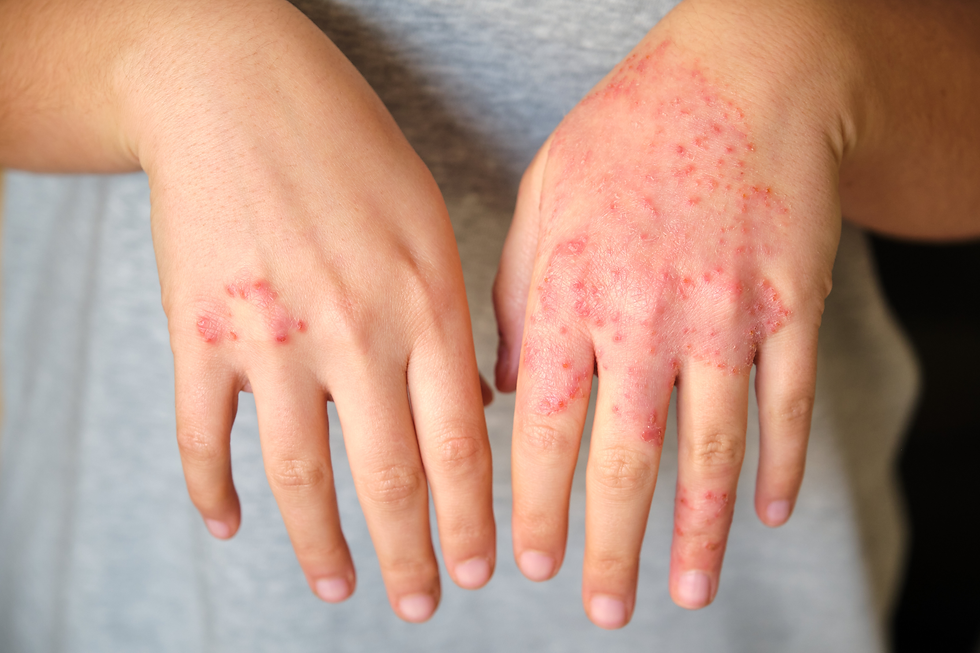Why Your Immune System Might Be the Root of Your Eczema
- Jul 9
- 4 min read
Dr Sue-Ann Ho Ju Ee, Medical & Surgical Dermatology Clinic, Novena Medical Centre, Singapore

Eczema is often recognised by its visible symptoms: dry, itchy, inflamed skin that can be persistent or appear in flares. While many people associate eczema with external factors like allergens, soaps, or weather changes, recent research confirms that the condition is more than skin-deep.
One of the most important but less visible causes of eczema is the immune system. At Medical & Surgical Dermatology Clinic in Novena Medical Center, we help patients understand how eczema originates, why it behaves the way it does, and how to manage it holistically.
What Is Eczema?
Eczema, also known as atopic dermatitis, is a chronic inflammatory skin condition. It often begins in childhood, but can affect people at any age. Symptoms can include:
Red, dry, or scaly patches of skin
Itching, which may be severe
Skin thickening or cracking
Oozing or crusting, especially if scratched
Sensitivity to irritants such as soaps, fabrics, or sweat
The condition tends to flare and subside, often without warning, and varies in severity from person to person.
The Role of the Immune System in Eczema
One of the underlying causes of eczema is immune dysregulation. In people with eczema, the immune system overreacts to minor irritants or allergens, triggering inflammation in the skin.
Here's what typically happens:
The skin barrier is compromised, making it easier for irritants and microbes to penetrate.
The immune system mistakenly perceives these as threats and mounts an inflammatory response.
This inflammation leads to redness, itching, and further damage to the skin barrier, creating a cycle of flare-ups and discomfort.
This explains why many people with eczema also have other immune-related conditions such as asthma, allergic rhinitis,, together with atopic dermatitis, these 3 conditions often referred to as the “atopic triad.”
What Triggers the Immune Response in Eczema?
While the immune system plays a central role, several external and internal triggers can provoke or worsen eczema symptoms.
Common Triggers Include:
Environmental allergens (e.g., dust mites, pollen, pet dander)
Harsh soaps or detergents
Sweat and heat
Emotional stress
Certain fabrics (e.g., wool)
Infections (bacterial or viral)
These triggers activate immune cells in the skin, which release cytokines and inflammatory mediators that cause redness, swelling, and itchiness.
Is Eczema an Autoimmune Disease?
While eczema involves the immune system, it is not classified as a traditional autoimmune condition, where the body attacks its own tissues. Instead, it is considered an immune-mediated inflammatory disease, where the immune system responds excessively to environmental or internal stimuli.
Emerging evidence also points to specific immune pathways involved in eczema, such as Th2 (T-helper cell type 2) responses, which are responsible for producing certain antibodies and inflammatory molecules.
Understanding this has helped develop targeted treatments, including biologics that modulate immune activity in a more precise way.
Genetic and Immune System Link
Research shows that individuals with atopic dermatitis often have a mutation in the filaggrin gene, which is responsible for maintaining the skin’s barrier function. When this gene is altered, the skin loses moisture more easily and becomes vulnerable to irritants and allergens.
In turn, the immune system must work harder to defend the body,, leading to the inflammation seen in eczema. This highlights how genetics and immunity often work together in the development of the condition.
Treating Eczema with the Immune System in Mind
Because eczema involves both the skin and the immune system, treatment must address both aspects.
Treatment Options Include:
Topical Therapy
Corticosteroids to reduce inflammation
Calcineurin inhibitors for sensitive areas
Moisturisers to restore the skin barrier
Systemic Therapy
Oral antihistamines for itch control
Immunomodulators in moderate to severe cases
Biologics (e.g., Dupilumab) that target specific immune pathways
Lifestyle and Preventive Measures
Avoiding known triggers
Using gentle, fragrance-free skin products
Maintaining a consistent skincare routine
Managing stress
At Medical & Surgical Dermatology Clinic, our team develops tailored eczema management plans ba
sed on the severity, triggers, and immune profile of each patient.
When to See a Dermatologist
You should consider a professional evaluation if:
Your eczema is frequent, painful, or affecting your daily activities
Over-the-counter treatments are no longer effective
You're unsure what’s triggering your flare-ups
You’re concerned about long-term skin damage or scarring
You want to explore immune-targeted therapy options such as biologics
Early intervention and long-term planning can significantly reduce the burden of eczema and improve skin health.
Supporting You Beyond the Skin
Living with eczema goes beyond treating the rash, it’s about managing a condition that begins within the immune system and affects confidence, comfort, and quality of life.
At Medical & Surgical Dermatology Clinic in Novena, we help patients understand the deeper causes of eczema and offer evidence-based treatment strategies designed to provide relief, restore skin health, and reduce flare-ups.
Book an Eczema Consultation Today
If you're struggling with eczema or want a clearer understanding of its root causes, we’re here to help. Our dermatologists can assess your symptoms, identify immune-related triggers, and develop a management plan tailored to your lifestyle and needs.



